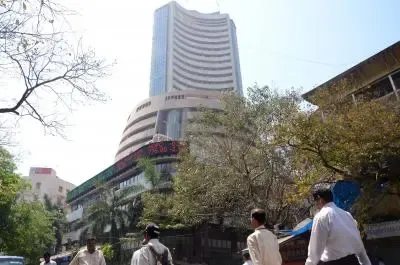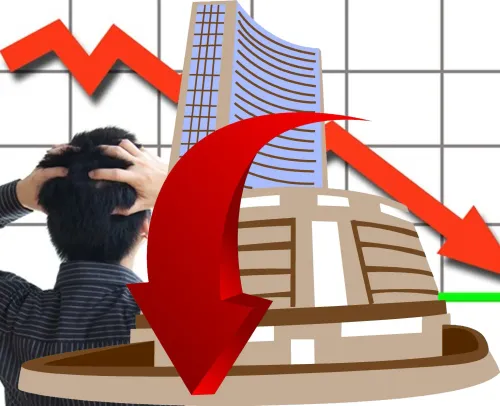BSE Shares Rise Over 16% Following SEBI's Expiry Day Proposal

Synopsis
Key Takeaways
- BSE shares jumped over 16% after SEBI's proposal.
- Standardized expiry days aim to boost market stability.
- Analysts see potential benefits for BSE's market share.
- High trading volume indicates strong investor interest.
- BSE stock has risen significantly over the past year.
Mumbai, March 28 (NationPress) The share price of Bombay Stock Exchange (BSE) Limited experienced a remarkable increase of over 16 percent on Friday as the Securities and Exchange Board of India (SEBI) put forth a proposal to standardize expiry days for equity derivatives across various exchanges.
In light of the market regulator's announcement, BSE shares rose by 16.09 percent, or Rs 753.65, culminating the trading day at Rs 5,438 on the National Stock Exchange (NSE), successfully surpassing its 200-day moving average.
SEBI's recommendation stipulates that all exchanges must select either Tuesday or Thursday as the designated expiry day for their derivatives contracts, which include both stock and index options as well as futures.
This strategic decision is intended to enhance predictability for traders, mitigate concentration risks, and bolster overall market stability.
As outlined in a consultation paper released by SEBI, exchanges are required to choose one of the two specified days and implement it uniformly across all their contracts.
Analysts from Jefferies opine that this initiative could favor BSE. Should the NSE revert to Thursday expiries while BSE retains Tuesday expiries, it may alleviate concerns regarding BSE's potential market share loss.
The brokerage further noted that the anticipated impact on BSE's earnings per share, projected at 12 percent, could be less severe than initially anticipated. Nonetheless, there remains ambiguity surrounding open interest limits.
With BSE's stock recovering most of its recent declines, analysts posit that diminished regulatory risks and improved market conditions could facilitate a re-rating of the stock.
Over the past year, BSE’s stock has surged by 104 percent, even though it has experienced a 3 percent decline since the beginning of this year.
Trading volumes for the stock were notably high, reaching 5.5 times its 30-day average. The stock’s relative strength index (RSI) was recorded at 60, indicating robust momentum.
Reports indicate that analysts monitoring BSE stock maintain a positive outlook, with the average 12-month price target suggesting a potential increase of 14 percent from the current levels.










